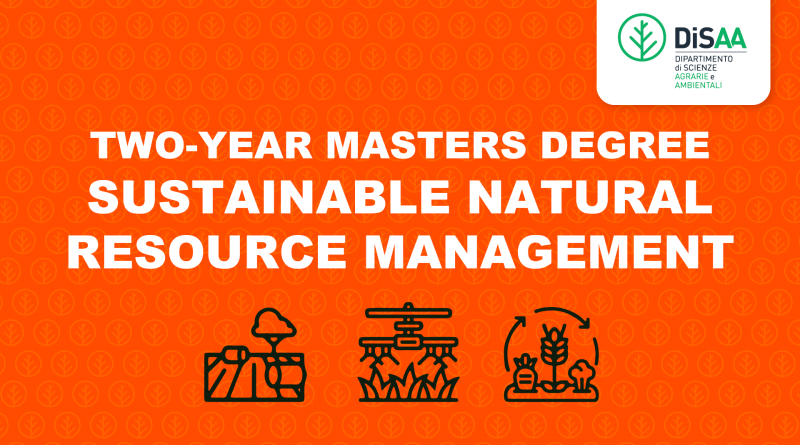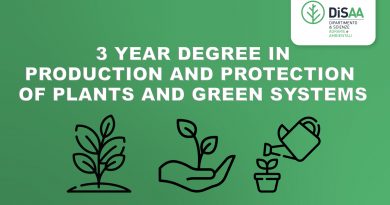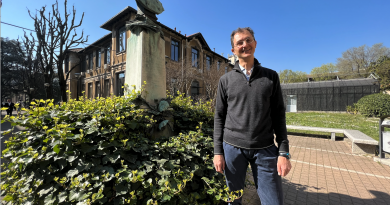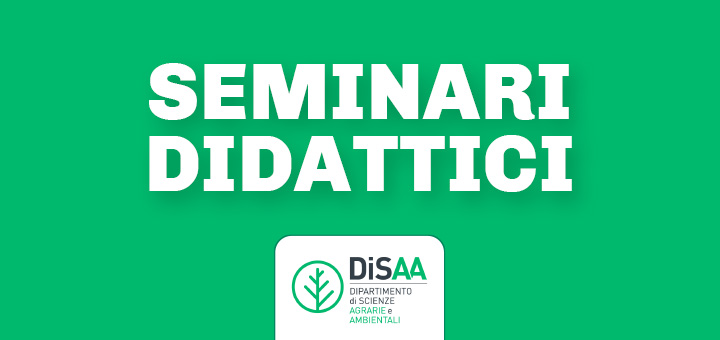TWO-YEAR MASTERS IN SUSTAINABLE NATURAL RESOURCE MANAGEMENT
The master’s degree program in Sustainable Natural Resource Management, held entirely in English, aims to train a graduate who knows how to work in the definition, implementation and management of natural resources and common goods policies, and their relationships with human activities, combining technical-engineering and biological-naturalistic knowledge.
The course of study is centered on three areas of expertise, strongly interconnected:
1) tools to support policies to enhance and increase ecosystem services;
2) tools for landscape design and planning (protection and maintenance works, green infrastructures, nature-based solutions);
3) tools to diagnose the state of health of environmental compartments (environmental control, monitoring, and bioremediation).
The assessment of learning results takes place with written and oral tests, and with the discussion of papers and projects carried out both individually and in small groups of students.
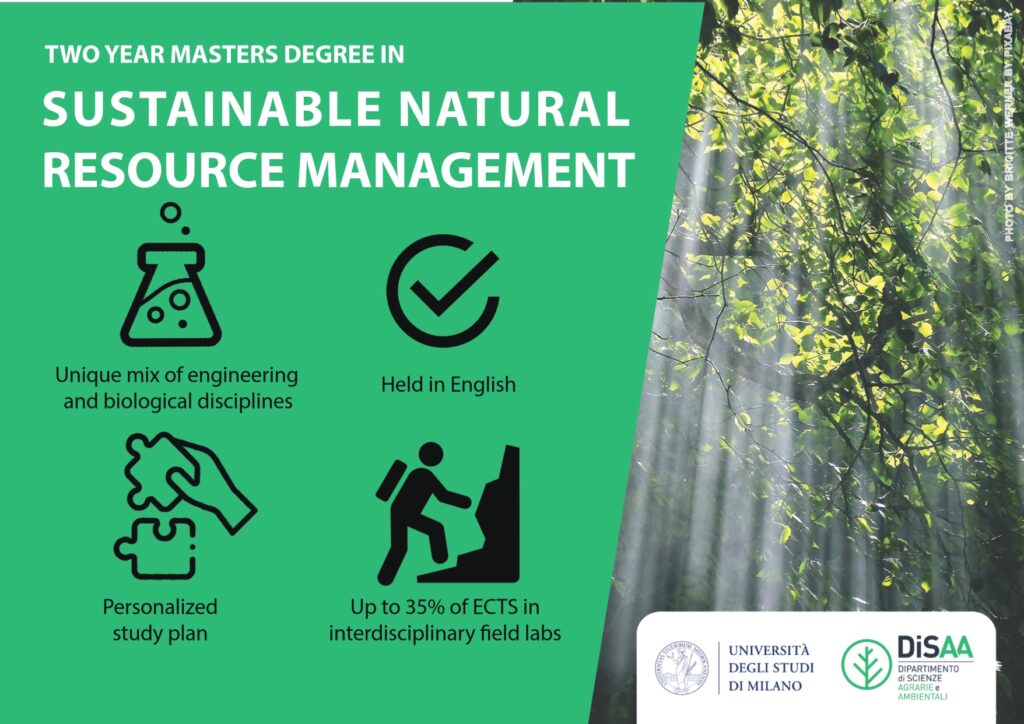
METHOD AND LAERNING OBJECTIVES
During two-year course the students will acquire 120 ECTS.
The training course consists of the following phases: a first phase of alignment (12 ECTS) to allow students from different BSc to acquire common foundations typical of the multidisciplinary approach of the course of study; a set of common courses (36 ECTS); two specialized laboratories (30 ECTS) aimed at acquiring a method which, starting from disciplinary approaches, merges with a systemic approach to tackle a case study on planning, regulatory and programming issues; the two laboratories, due to the constraint of the composition of the study plan, are necessarily of different methodological structure and operational outlet, allowing the student to face different aspects of environmental problems and different methodologies of analysis and approach; a set of free-choice courses (15 ECTS); the acquisition of additional language skills (3 ECTS); and finally the realization of the degree thesis (24 ECTS). The thesis can be carried out, under the responsibility of a supervisor of the MSc, at the laboratories of the University of Milan or at external bodies / companies. Through the Erasmus+ program it is possible to complete part of the training course in a foreign university, taking exams or writing a thesis.
PROFESSIONAL PROFILES
The professional profiles of the graduate in Sustainable Natural Resource Management are:
- expert in planning and design of green and blue infrastructures; expert in planning and design in the context of ecological reconnection of the territory; expert in forest planning and design for environmental and ecosystem purposes;
- expert in planning and regulation in the use of water resources in agriculture;
- expert in environmental biomonitoring; expert in nature-based solutions for the environmental remediation of degraded ecosystems.
The bodies, institutions and companies with which he/she can collaborate are: park authorities, reclamation and irrigation consortia, mountain communities, laboratories, professional firms, and service companies. Freelance activity is also possible upon passing the state exam and enrolment in the Italian Register of Agronomists and Foresters.
The graduate also has the necessary skills to undertake further studies (PhD, Master).
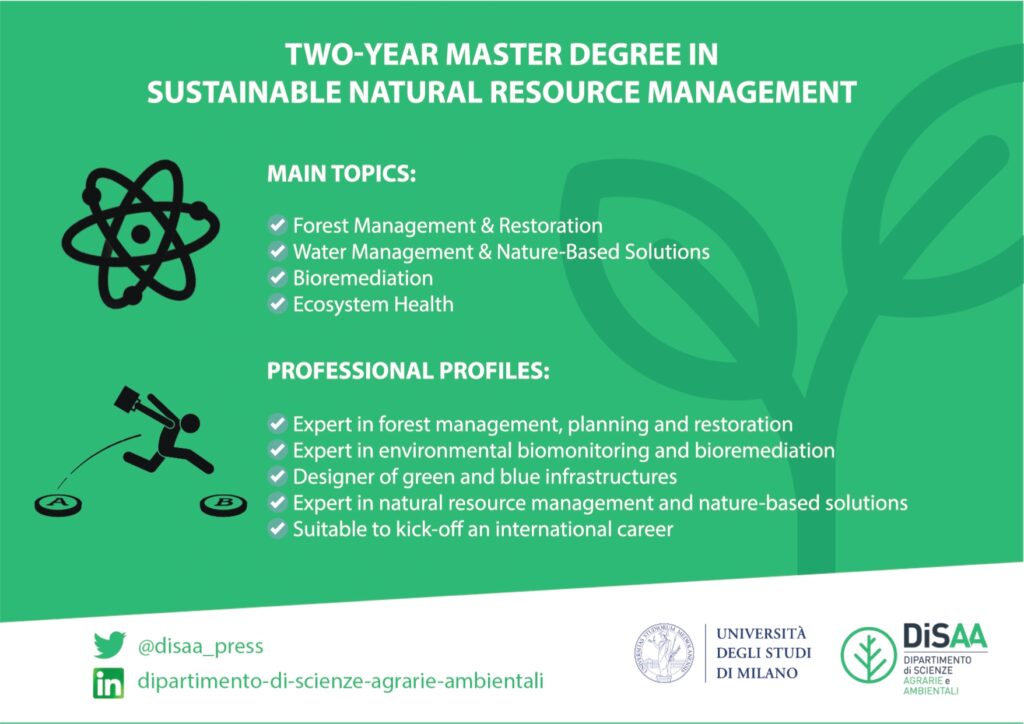
UNIVERSITY BACKGROUND AND LANGUAGE REQUIREMENTS
The access to the course is open, and is aimed at students graduated in Italy in classes L-21, L-25 or L-32, and to foreign students. Admission is subject to verification of possession of a number of curricular requirements (detailed in the study manifesto), including knowledge of English (B2), and to passing an interview to verify personal preparation.
Language requirements: to be admitted to this MSc a B2 English level is needed.
Schedule: admission applications can be uploaded until October 31, 2022; deadline to obtain the BSc and other entry requirements (e.g. English B2) is on 31st December 2022; enrolment is possible until January 16, 2023. The beginning of the first semester will be on 26 September 2022.
More information: https://snrm.cdl.unimi.it/en, didattica.disaa@unimi.it.

